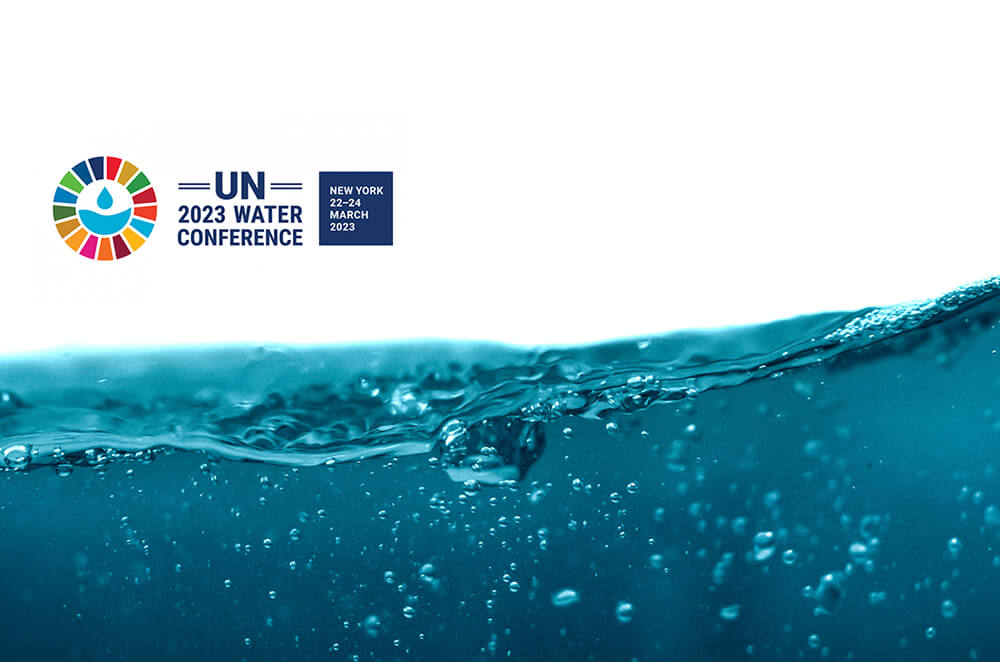
UN Water Conference Highlight: The Water Action Agenda
Fecha: 27/03/2023
The second ever UN Water Conference took place in New York from March 22nd (coinciding with World Water Day) to March 24th. More than 2,000 government representatives, scientists, academics, Indigenous people, and youth delegates attended the event, making it clear there is world-wide awareness of the importance of discussing water on a global stage, even if it hasn’t been done since 1977.
The conference served as a space to present the many pressing issues related to water –floods and draughts, pollution, scarcity, lack of access– that people around the world are facing, as well as the innovative solutions some have come up with to cope with these issues or better manage water supplies.
Water Action Agenda
But the main expectation for the conference was the creation of the Water Action Agenda, which would highlight a series of commitments to stave off the global water crisis. The creation of this agenda is relevant because it presents straightforward actions that can be taken by all, from making smarter food choices to re-evaluating water as a powerful economic driver. Most of all, it makes it clear that, like climate change, “water needs to be at the center of the global political agenda”, in the words of UN Secretary-General António Guterres.
Yet, unlike the Paris Agreement, the Water Action Agenda is not an internationally-binding treaty. Instead, it highlights voluntary commitments and plans for the future. In his closing remarks on Friday, General Assembly President Csaba K?rösi said: “The outcome of this conference is not a legally binding document, but it still turns the page of history. You have reconfirmed the promise to implement the human right to water and sanitation for all.”
K?rösi also highlighted the fact that the $300 billion in pledges made to buoy the Water Action Agenda has the potential of unlocking at least $1 trillion of socioeconomic and eco-system gains. Additionally, the hope is that the actions and plans submitted to the Agenda will culminate in binding agreements at this November’s COP28.
Over 700 commitments have been registered in the Agenda’s website by local and state governments, NGOs, and private companies, and they tackle issues as diverse as water access, public policy and legal protection related to water, the link between the water crisis and climate change, data and monitoring systems and improving the resilience of infrastructure.
The next step, of course, is the critical one. In his speech, Secretary-General Guterres was clear on the importance of turning these plans into palpable actions, saying that “all of humanity’s hopes for the future depend on bringing the Water Action Agenda to life.”
